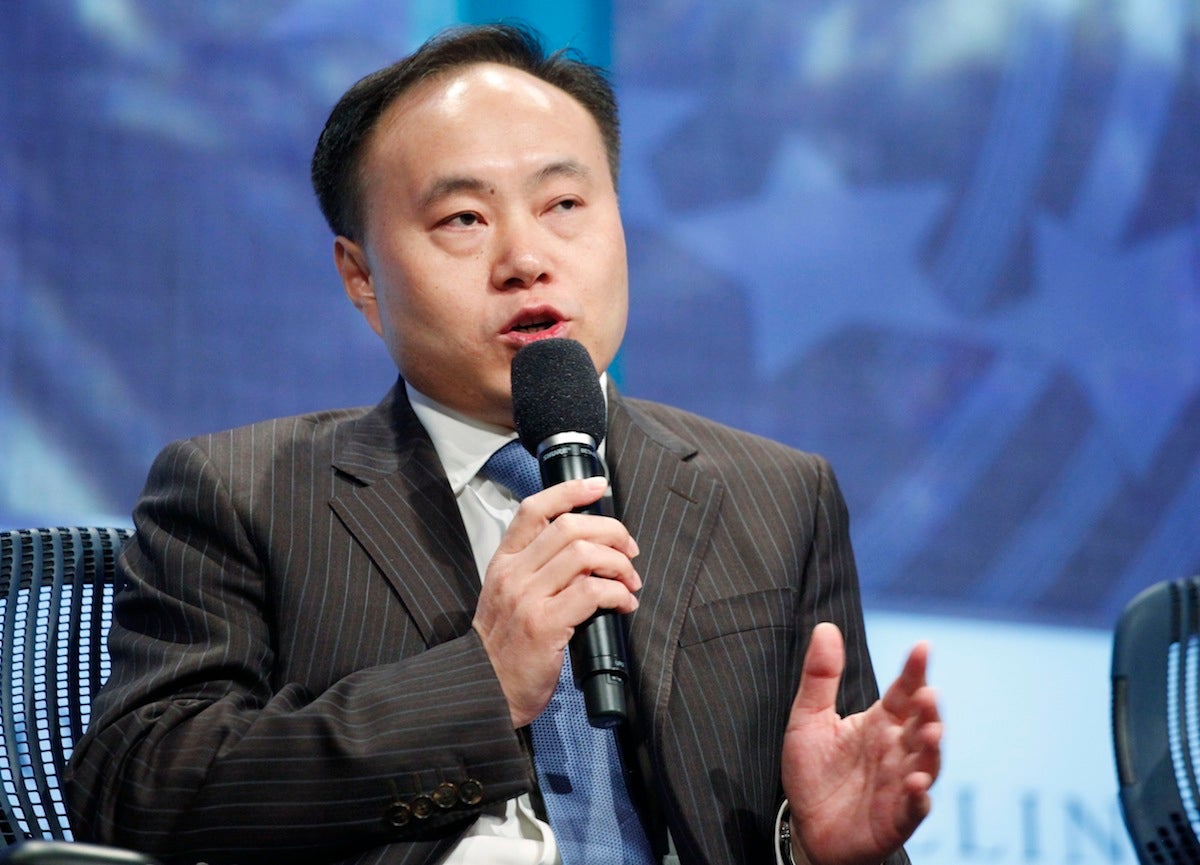Will there be a show trial for China’s sun king?
Zhengrong Shi did some rather eyebrow-raising deals when he ran Suntech, China’s biggest solar panel maker. And now the Chinese authorities are, belatedly, getting interested. They have reportedly prohibited Shi and current Suntech CEO David King from leaving the country while an investigation into the struggling company’s finances unfolds.

Zhengrong Shi did some rather eyebrow-raising deals when he ran Suntech, China’s biggest solar panel maker. And now the Chinese authorities are, belatedly, getting interested. They have reportedly prohibited Shi and current Suntech CEO David King from leaving the country while an investigation into the struggling company’s finances unfolds.
The Chinese inquiry could shed light on how Suntech went from market leader to now having $2 billion in debt and a market capitalization of less than $100 million. (If you haven’t been following the Suntech saga, here’s the story so far.) It likely focuses on deals that various other companies run by Shi made with Suntech at a time when the solar scientist-turned-entrepreneur, who founded Suntech, controlled nearly 60% of its stock.
One of the firms that has caught the authorities’ attention is called D&M Technologies. Shi founded it, alongside Suntech, after finishing his doctorate in Australia and returning to China in 2001. D&M is registered in the British Virgin Islands, and currently holds 28.34% of Suntech’s shares.
In 2009, Suntech bought a stake in a polysilicon maker called Asia Silicon, a Chinese company registered in the British Virgin Islands. Polysilicon is the key component of solar cells and in 2008 prices reached record highs. Suntech had bought 12.5% of Asia Silicon from an unidentified “existing shareholder” for $8.1 million, and later increased the stake to 20%. It also signed a 16-year, $1.5 billion polysilicon purchase agreement, it disclosed in financial filings.
In December 2010, Suntech sold the stake in Asia Silicon for $23.9 million. Five months later Shi revealed to Suntech’s board that D&M Technologies had acquired 91.3% of Asia Silicon—and thus became the beneficiary of that $1.5 billion contract.
Another interesting transaction concerned a firm called Global Solar Fund. Suntech had set it up along with a former associate of Shi’s, Javier Romero. Its job was to finance solar projects in Europe; Suntech owned 80% of it. Another company controlled by Shi, Best (Regent) Asia, took a 10.67% stake. Then Suntech guaranteed a €554 million (currently $718 million) credit line from the government-run China Development Bank for GSF to finance solar installations that bought—surprise!—Suntech photovoltaic panels. In 2009, 7% of Suntech’s revenues came from sales to GSF, which bought $346.8 million in solar panels between 2009 and 2011.
That profitable partnership unraveled last year. Suntech discovered, it said, that €560 million in German bonds that Romero’s company had put up as security for the credit line did not actually exist. At the time, Shi and Suntech chief technology officer Stuart Wenham controlled 50% of the votes on GSF’s board, and David King, the current CEO, was chief financial officer. In another strange twist, Suntech this month settled a fraud suit against Romero by dropping the case and buying out his interest in GSF.
The consequences for Suntech of any charges that may be filed against Shi, who holds both Australian and Chinese citizenship, remain unclear. Shi stepped down as chief executive last August and on March 5 the company’s board fired him as executive chairman. Last week, the board appointed a former executive of a state-controlled holding company as Suntech’s new president.